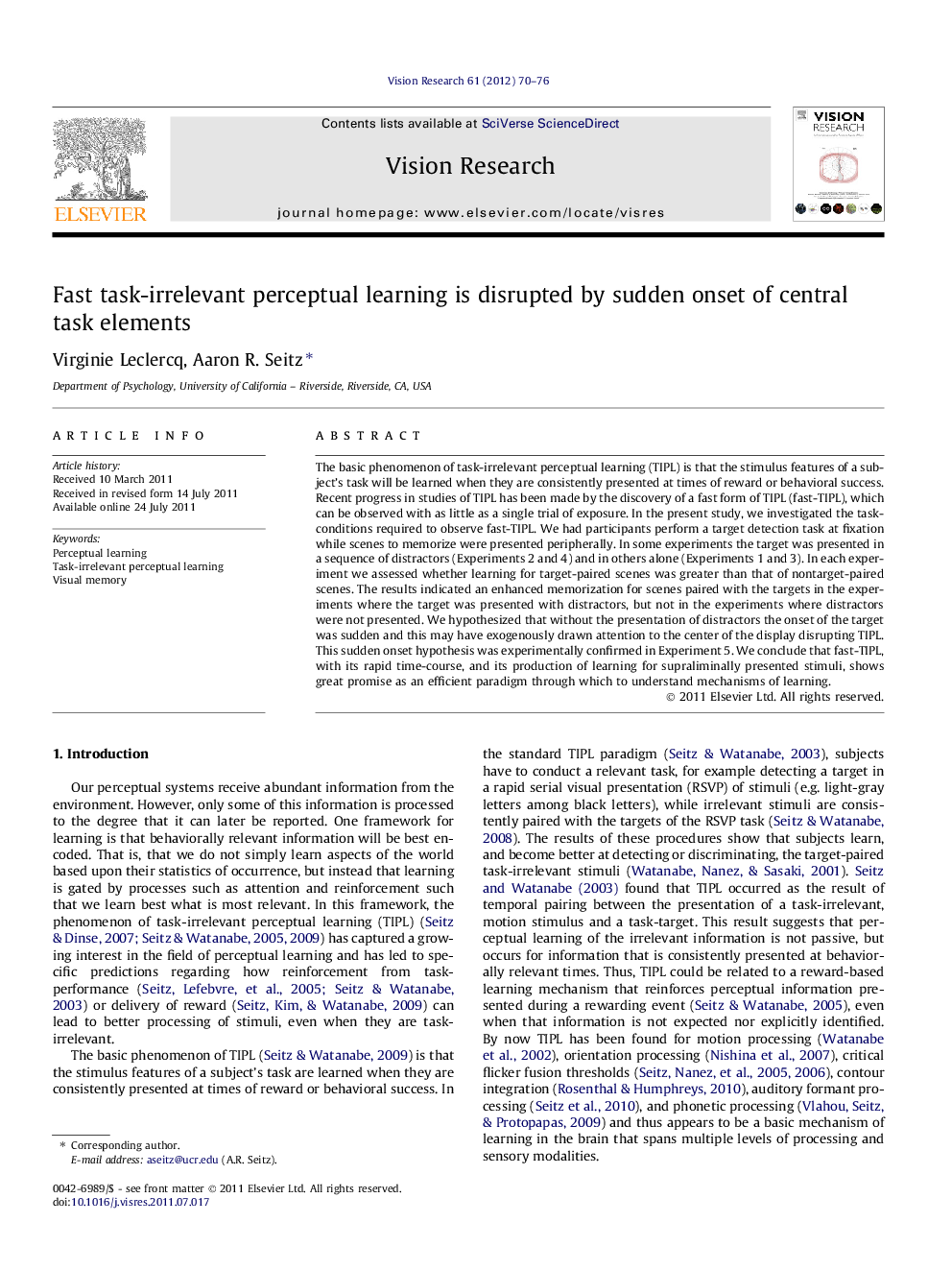| Article ID | Journal | Published Year | Pages | File Type |
|---|---|---|---|---|
| 4034009 | Vision Research | 2012 | 7 Pages |
The basic phenomenon of task-irrelevant perceptual learning (TIPL) is that the stimulus features of a subject’s task will be learned when they are consistently presented at times of reward or behavioral success. Recent progress in studies of TIPL has been made by the discovery of a fast form of TIPL (fast-TIPL), which can be observed with as little as a single trial of exposure. In the present study, we investigated the task-conditions required to observe fast-TIPL. We had participants perform a target detection task at fixation while scenes to memorize were presented peripherally. In some experiments the target was presented in a sequence of distractors (Experiments 2 and 4) and in others alone (Experiments 1 and 3). In each experiment we assessed whether learning for target-paired scenes was greater than that of nontarget-paired scenes. The results indicated an enhanced memorization for scenes paired with the targets in the experiments where the target was presented with distractors, but not in the experiments where distractors were not presented. We hypothesized that without the presentation of distractors the onset of the target was sudden and this may have exogenously drawn attention to the center of the display disrupting TIPL. This sudden onset hypothesis was experimentally confirmed in Experiment 5. We conclude that fast-TIPL, with its rapid time-course, and its production of learning for supraliminally presented stimuli, shows great promise as an efficient paradigm through which to understand mechanisms of learning.
► We studied conditions necessary for fast task-irrelevant perceptual learning. ► Fast task-irrelevant perceptual learning can occur in a single trial. ► Fast task-irrelevant perceptual learning can occur for salient stimuli. ► Sudden onset of task elements disrupts fast task-irrelevant perceptual learning.
